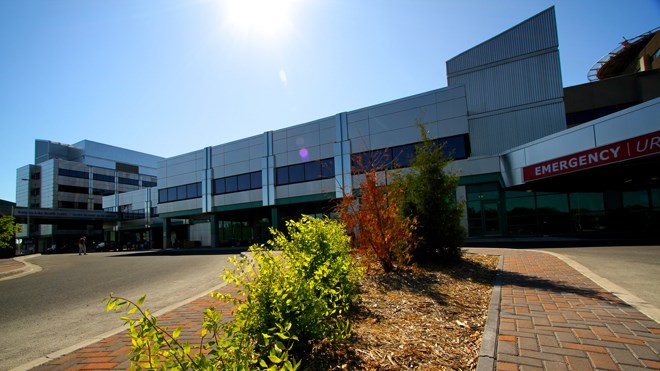Innovative medical procedures at Health Sciences North (HSN) are helping the hospital cope with the surgical backlog there.
"The surgical waitlist at HSN currently sits at about 4,200 patients, in comparison to 3,500 prior to the start of the pandemic," said Jason Turnbull, communications manager at HSN.
The push to reduce the backlog has been underway for several weeks. The hospital said it appears the demand for critical care beds for COVID-19 patients is not as urgent as it was earlier this year when COVID-19 patients were being transferred in from other cities in Southern Ontario.
"HSN’s Surgical Department has ramped up to 100 per cent of historical activity in the last two weeks," Turnbull added.
As that effort is underway, so is the innovative work of physicians and other health care professionals at HSN, said Dr. John Fenton, the medical chief of staff at the hospital. Fenton was commenting at last week's annual general meeting of HSN when he outlined efforts aimed at improving and streamlining medical care at the hospital.
Fenton revealed that despite the pandemic, recruitment efforts for HSN in the past year have attracted 11 new family medicine physicians, and 19 new specialists, providing expertise in such sub-specialties as respirology, pediatrics, anaesthesia, general surgery, general internal medicine, cardiology, pathology, radiology, otorhinolaryngology, medical oncology, psychiatry, orthopedic surgery, and gastroenterology.
Fenton said this was the largest ever group recruited in one year to the community. He added that so far for 2021, there are already 21 new physicians that have agreed to move to Sudbury.
Fenton further reported that in February a new collaboration with sub-specialty training radiologists from Unity Health Toronto was put in place to provide evening and weekend coverage for HSN. This collaboration with Unity Health has eliminated the need for a third-party remote radiology service, said Fenton.
The hospital has also launched a new program called SeamlessMD as part of Ontario Health's remote patient initiative aimed at safer home care during the pandemic. Fenton said this is an app that allows patients and the hospital to be virtually connected at home before and after hip and knee replacement surgery.
In addition to that, Fenton said patients needing hip and knee replacements are also benefiting from less invasive surgical approaches.
"This means instead of staying in hospital for two or three days, these patients are now able to go home on either the day of the procedure or the following day," said Fenton.
"New surgeries have been introduced for breast and colon cancer, cardiac care, as well as for patients needing shoulder, liver and pancreatic surgeries. These new procedures are possible because of important upgrades made to our operating room and cardiac labs to allow for more complex procedures to take place that are less invasive leading to less time in hospital for patients," Fenton added.
He said Blue Light Technology is one of the new procedures that is directed at patients with bladder cancer.
"Surgeons use blue light to find small cancer lesions and tumors to remove, that would not have been visualized by other procedures. It causes tumors to show up as bright pink under blue light, making them much easier to see and treat," Fenton explained.
Fenton also described a new pain treatment, peripheral nerve-block catheterization, that allows more patients to go home more quickly after surgery. It was started last November by HSN's Anesthesia Department and Acute Pain Service.
"Instead of staying in hospital, patients are now being sent home with a pump for pain control after surgery. Before this program, only two per cent of patients were going home the day of their surgery because pain control needed to be taken care of in hospital. Now, 24 per cent of our patients have been able to go home the same day," he said.
Fenton also described in detail a new treatment for stroke, introduced this year at HSN.
"It’s called ‘endovascular therapy’ or ‘stroke EVT’ for short. It’s a treatment that removes large stroke-causing clots from the brain with miraculous results," said Fenton.
"Patients who are eligible for the treatment can see dramatic reductions in disabilities and it significantly reduces the chance of death from a stroke. HSN is one of only 11 EVT centres in the province to perform this procedure and the only one in Northeastern Ontario to offer this treatment."
Fenton added that he made time to witness several of the EVT treatments as they were being introduced at the hospital. He said the results from the first treatment were indeed miraculous as one stroke patient, who had been paralyzed and unable to speak, was alert, moving and speaking "within minutes" of getting the treatment.
Fenton said it was a life changing procedure and a huge step forward in stroke therapy.
Len Gillis is a Local Journalism Initiative reporter at Sudbury.com. He covers health care in Northern Ontario.
